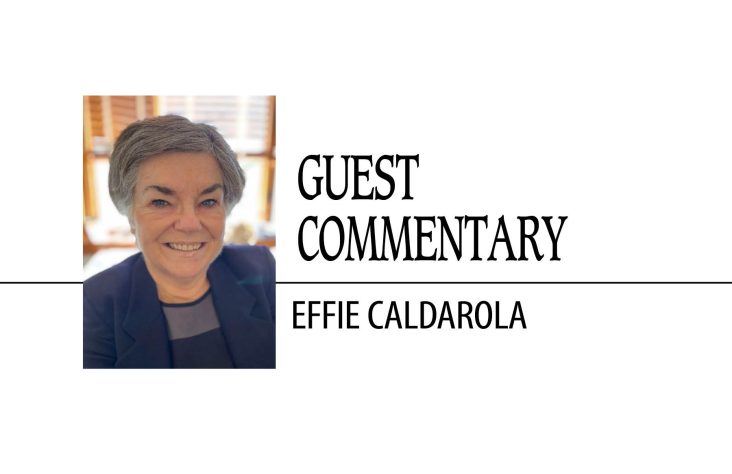September 2, 2009 // Uncategorized
Pope accepts resignation of Scranton bishop for health reasons
WASHINGTON (CNS) — Pope Benedict XVI has accepted the resignation of Bishop Joseph F. Martino, 63, from the pastoral governance of the Diocese of Scranton, Pa., for health reasons.
He has appointed Cardinal Justin Rigali of Philadelphia to be apostolic administrator for the diocese.
The pope also has accepted the resignation of Scranton Auxiliary Bishop John M. Dougherty, who is 77. Canon law requires that all bishops submit their resignation to the pope when they turn 75.
Cardinal Rigali named Msgr. Joseph C. Bambera, pastor of St. Thomas Aquinas Parish in Archbald and St. Mary of Czestochowa Parish in Eynon, as his delegate for day-to-day administration of the diocese.
At a news conference in Scranton Aug. 31, Bishop Martino said he had been experiencing insomnia, “crippling physical fatigue” and frequent bouts of the flu brought on by the stress of his work as bishop.
“As the song says, you have to know when to hold them and when to fold them, and I think it is time for me to move on,” he said, adding that he felt he left the Diocese of Scranton “a little leaner, with greater energy to do the work of God more efficiently and more effectively.”
Bishop Martino, who served for six years in Scranton, oversaw the “Called to Holiness and Mission” pastoral planning process that led to the scheduled closing of more than 100 parishes and schools in the Scranton Diocese between 2007 and 2012.
Members of some of those parishes have appealed the closures to the Vatican.
At the news conference, Bishop Martino asked forgiveness from “anyone I have not adequately served as bishop.” He said he planned to remain in the Scranton Diocese but would not participate in confirmations or other public events, at least initially, in order not to overshadow the work of Cardinal Rigali, Msgr. Bambera and the new bishop of the diocese when he is appointed.
In his remarks, Cardinal Rigali said: “Change and transition are always challenging to embrace. Yet, we know that life goes on. In the church, life always goes on with joyful anticipation of the future because the risen Christ journeys with us. And life will go on here in the Diocese of Scranton with apostolic succession and the continuity of Catholic faith.”
He said the Scranton Diocese “is richly blessed” with the “vibrant faith” of laity, religious and clergy, and parishes that help the needy as they “seek to build up the kingdom of God.” He noted the priests faithfully serve the church “even as they face various difficulties and challenges, including changing parish structures.”
“May we use this time of transition as a period of prayer and expectation. I invite you to work together in pursuing charity in truth,” he said.
He praised Bishops Martino and Dougherty for their service to the church.
He also said Bishop Martino’s resignation “comes after much prayer and reflection,” and the decision “also carries with it a deep concern for the well-being of this local church, with its clergy, religious and laity.”
Joseph F. Martino was born in Philadelphia May 1, 1946. He studied at the Pontifical North American College in Rome and earned a licentiate in sacred theology at the Pontifical Gregorian University there.
He was ordained a priest for the Philadelphia Archdiocese Dec. 18, 1970, and was named a Philadelphia auxiliary bishop in 1996. He was appointed bishop of Scranton in July 2003 and was installed as head of the diocese in October 2003.
Born in Scranton April 29, 1932, John M. Dougherty studied at the University of Notre Dame, where he earned an master of arts degree, and at St. Mary’s Seminary in Baltimore, where he obtained a sacred theology licentiate. He was ordained a priest for the Diocese of Scranton June 15, 1957, and was named auxiliary bishop of Scranton Feb. 7, 1995. His episcopal ordination was a month later.
The Scranton Diocese was established in 1868 and comprises 11 counties in northeastern Pennsylvania. It has a Catholic population of 325,243, 30 percent of the area’s a total population of about 1 million.
Bishop Martino said he had submitted his resignation to the Vatican June 15 and had received notification that it had been accepted around the end of July.
“It’s a relief to me to have all of this out in the public,” he said, adding that he felt “free, much lighter” at being “able to speak honestly about something I have known for three months.”
He said he planned to be “of any service I can be” and expressed confidence that “the Lord has always found something more fulfilling for me.”
Asked what he thought his national impact might have been, especially his strong support of the sanctity of life, Bishop Martino said he “never had a desire to attract any following” and had only done “what I was supposed to do.”
But he said he had received many letters from pro-life Catholics who had been encouraged by things he had said.
“Pro-life people are sometimes seen as pesky, but they are very dear to the Lord, and bishops should encourage them,” he said. “Not the radical fringe — all groups have the radical fringe — but those in the mainstream.”
Last November, during the bishops’ fall general meeting, Bishop Martino urged the bishops “to speak as firmly as possible to Catholic politicians who are not merely reluctant to vote pro-life, but are stridently anti-life.” He noted that in ages past, U.S. bishops took canonical measures against Catholic politicians who supported institutional racism.
The best news. Delivered to your inbox.
Subscribe to our mailing list today.





